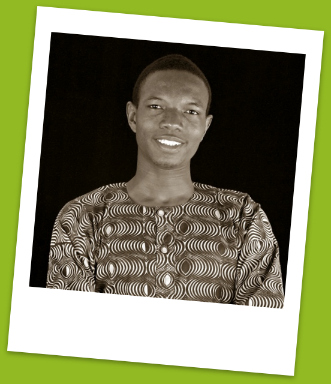“The January protests in Nigeria over the fuel subsidy are unusual”
January 16th, 2012 The Nigerian government’s removal of a fuel subsidy earlier this month has led to some of the largest recorded public demonstrations in recent national history, reports Commonwealth Correspondent Ayodeji Morakinyo, 24.
The Nigerian government’s removal of a fuel subsidy earlier this month has led to some of the largest recorded public demonstrations in recent national history, reports Commonwealth Correspondent Ayodeji Morakinyo, 24.
In January 2012, the federal government of Nigeria gave its citizenry a New Year gift: the removal of the petrol subsidy. The President of Nigeria, Dr Goodluck Ebele Jonathan, had suggested 2012 as when the subsidy might be removed, but it came as a shock when he implemented the decision on the first day of January.
In response, the citizens have through the national labour congress, trade unions, professionals associations, activists and celebrities expressed their displeasure. The past week has seen a nationwide strike and a series of peaceful protests. This strike action, which began on January 9 2012, has crippled the nation’s economic activities. Protests meanwhile have recorded the highest turnout in the history of public demonstrations.
The effects of the removal of the subsidy is an escalated cost of living as feeding, doing business, transportation, education and other things that depend on electricity become more expensive. This is because most facilities have to utilize petrol-dependent generators in the absence of reliable power from the nation’s public utility company.
Though many have serious complaints about the effects of the subsidy removal on their livelihoods, protesters say they are also concerned about corruption, the high cost of governance and growing terrorism. The protesters also complain about the high incomes of government officials and the costs of running a government in Nigeria being higher than those of many developed countries in the world.
On Christmas day in 2011, the Boko Haram terrorist group bombed a group of Christians as they worshipped in churches and still, in 2012, it has not relented. Though not unconnected to politics, some citizens have claimed that the Nigerian government under the leadership of the President is too weak to extinguish the terrorist group. As such, their cry is to have him removed, much like the subsidy itself.
Spokespersons of the government in turn have justified the removal by saying that gangs have been selfishly looting the subsidy disbursement and its removal was the only solution because the cabals of corrupt persons concerned were untouchable.
The demonstrations remain remarkable because they involve an exceptional number of participants. Youths, who are concerned about their future, trooped out en masse to join the protesters nationwide. Unlike previous times, the involvement of so many Nigerians, regardless of their economic status, is an unusual feature of the January protests.
The Nigerian citizens have proven that the people of any country matter and that demanding accountability and transparency from national leaders is a civic responsibility.
…………………………………………………………………………………………………………………
About me:
“I am an animated and artistic writer hailing from the southwest region of Nigeria. I hold a degree in electronics and electrical engineering and am certified as an IT professional.
“On days when I am not busy with engineering and management activities, I write prose poems, short stories and journalistic commentaries. In the coming years, I hope to help other people’s lives around the world and aid in the reformation of Africa.”
…………………………………………………………………………………………………………………
Opinions expressed in this article are those of the author and do not necessarily represent the views of the Commonwealth Youth Programme. Articles are published in a spirit of dialogue, respect and understanding. If you disagree, why not submit a response?
To learn more about becoming a Commonwealth Correspondent please visit: http://www.yourcommonwealth.org/submit-articles/commonwealthcorrespondents/
…………………………………………………………………………………………………………………



